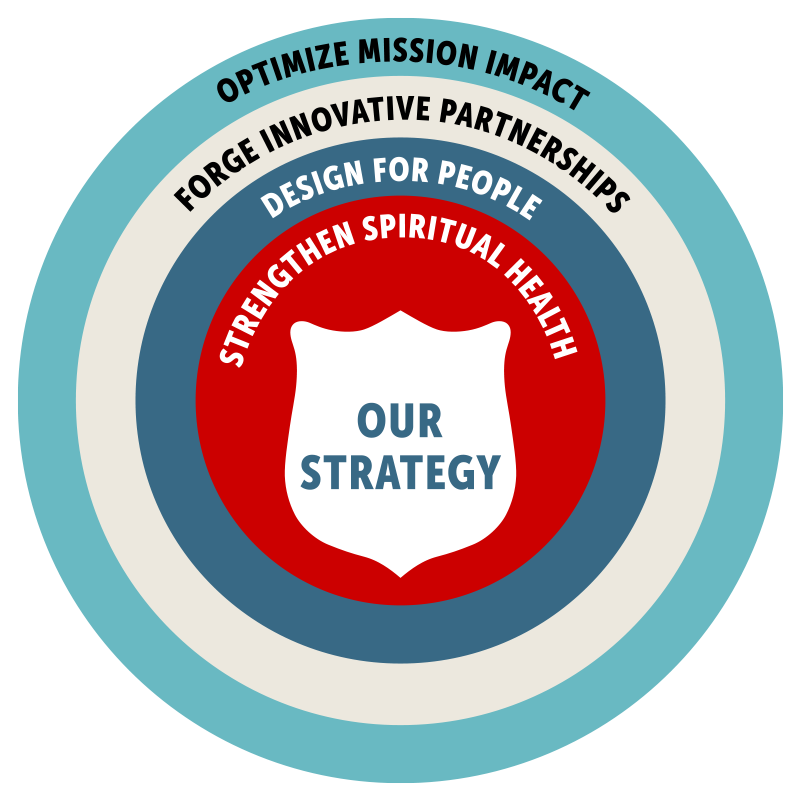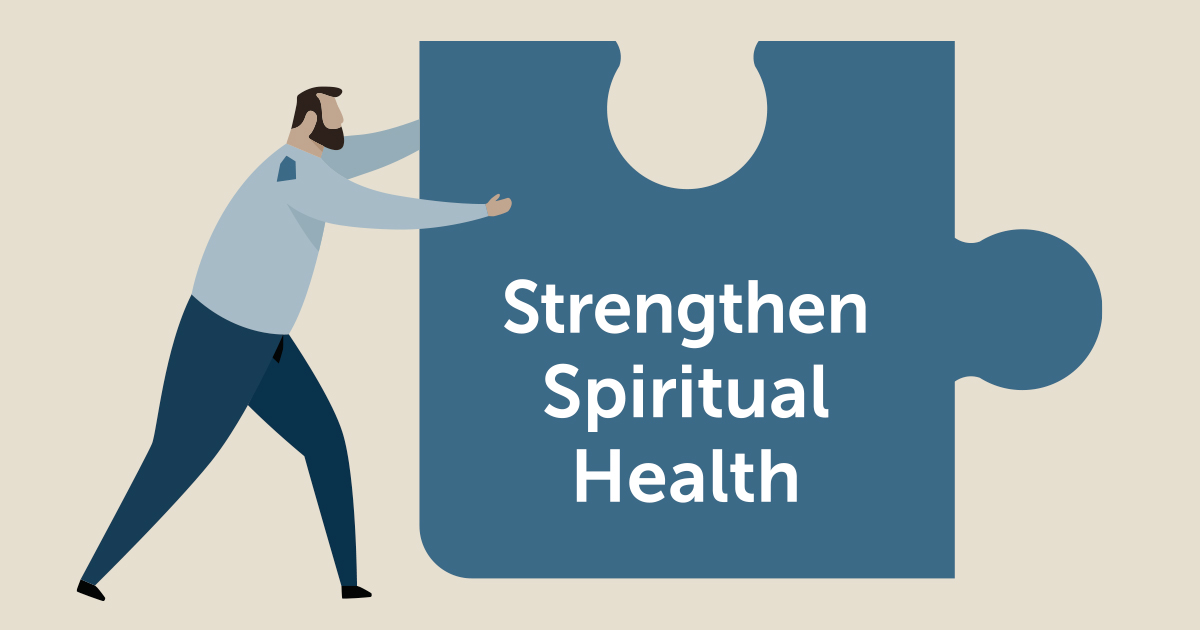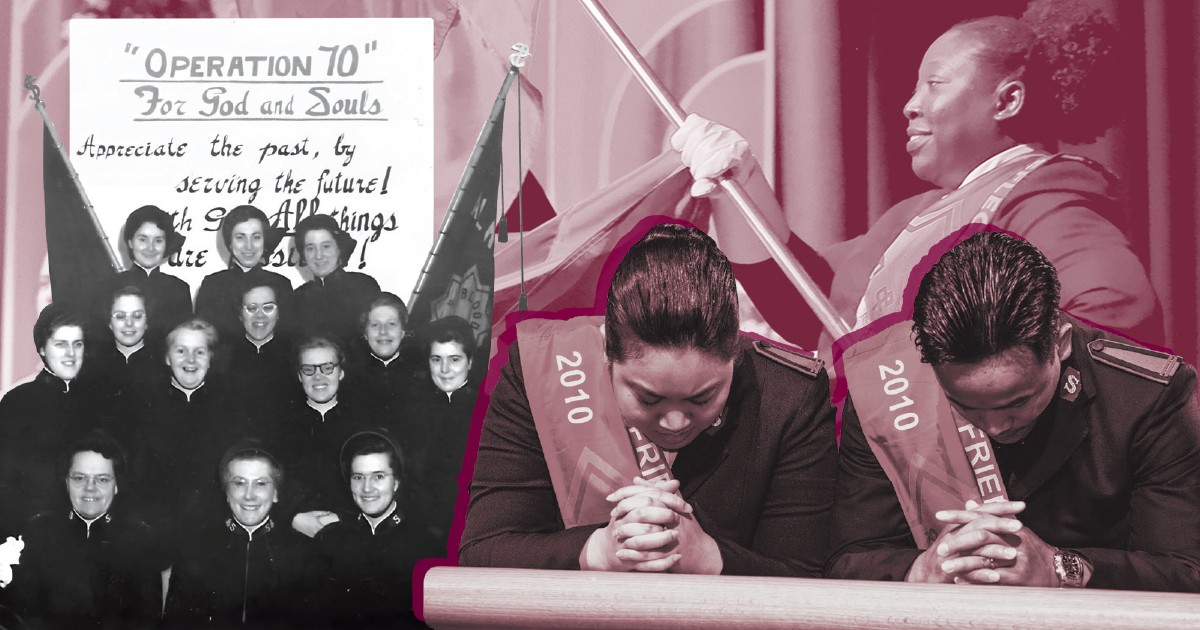The Army’s future depends on its spiritual health. Without a vibrant, lived-out faith, we are in danger of becoming just another charity. Since its inception, the Army has been motivated by the love of Jesus to serve others in his name.
That’s why the first pillar of the Mobilize 2.0 transformation project’s new strategic plan is Strengthen Spiritual Health. In many ways, God is calling us back to that original purpose. Our new vision statement sums it up: “We are an innovative partner, mobilized to share hope wherever there is hardship, building communities that are just and know the love of Jesus.”  In the July/August issue of Salvationist, we highlighted a new territorial strategic plan. In this four-part monthly series, we will unpack each of the strategic pillars: Strengthen Spiritual Health, Design for People, Forge Stronger Partnerships and Optimize Mission Impact.
In the July/August issue of Salvationist, we highlighted a new territorial strategic plan. In this four-part monthly series, we will unpack each of the strategic pillars: Strengthen Spiritual Health, Design for People, Forge Stronger Partnerships and Optimize Mission Impact.
Objectives
There are three strategic objectives under the spiritual health pillar:
• Our Christian faith pathways result in robust and authentic discipleship
• Our ministry units are places of holiness and spiritual vibrancy
• Our communities of faith are flourishing
When these three things are happening, we’ll know we are being effective in developing vibrant spiritual health. The “how” of these objectives may look different in different ministry units, but the goal is the same.
Being Intentional
One of the aims of the strategic plan is to create a unified understanding and application of discipleship. The church, and the Army, have seen decline over recent years. If we want to reverse that trend, we need to be intentional and serious about our spiritual health, and we also need to better understand how to reach people in our current society.
Kevin Slous, territorial secretary for spiritual life development, notes, “We need to develop a consistent, holistic and intergenerational approach to supporting people on their discipleship journeys, building a framework on identified essentials of healthy discipleship.” For Slous, the process is one of becoming a CHRIST-centred, OTHERS-focused disciple.
“We encounter Christ through the gospel story, proclaimed and lived out. It is in this greater ‘story’ that we find ourselves as Christians. As we seek to make disciples ourselves, we recognize that the experience and expression of faith is not solely for our own benefit. We have an others-focused faith.”
In Our DNA
Spiritual health has been a crucial component of the Mobilize 2.0 process itself. From the outset, this territorial transformation project has been grounded in prayer and the Word of God. We began with 100 Days of Unceasing Prayer and Shared Scripture and then engaged in worship and discussion through Together in Mission and Together in Vision. Our territorial leaders, Commissioners Floyd and Tracey Tidd, have used Ezekiel 37, the story of dry bones coming to life, as a metaphor for what God can do in this territory.
Through all these discussions, it’s clear that Mobilize 2.0 is about igniting the soul of who we are. Spiritual health has been given primacy as the first pillar, acknowledging that Jesus is at the centre of all we do. Many have described it as the DNA of our movement. Only when we, as individuals, are of good spiritual health can we reflect that in our ministry expressions and in our communities.
Innovation and Accountability
The pandemic has created challenges, but also new opportunities for the Army. One area that has been strengthened is the connections between ministry expressions—corps, community services, social mission and external partnerships. We have been forced to look outside our four walls and now have the opportunity to further develop those relationships, to nurture spiritual health in our communities.
“We need to build on the innovation that we’ve learned in a pandemic environment,” notes Commissioner Floyd Tidd. “That doesn’t necessarily mean throwing out old ways, but rather seeing what’s working now and applying it to strengthen spiritual health.”
The territorial strategic plan will help us ask the tough questions: How effective are we at developing and enriching spiritual health? What kind of impact are we having? What does spiritual health really look like? In response to the objectives, we will consider what tools and supports can foster discipleship, as well as considering how we best measure spiritual health and hold ourselves accountable to this pillar. Measurement is more than just counting numbers in the pews; it is seeing people moving along the journey of discipleship and engaging in our mission as an expression of their commitment to become spiritually vibrant followers of Jesus.
A Salvation People
The Army’s co-founder William Booth once remarked: “We are a salvation people—this is our speciality—getting saved and keeping saved, and then getting somebody else saved, and then getting saved ourselves more and more until full salvation on earth makes the heaven within.”
May this continue to be our goal.
Illustration: nazarkru/iStock via Getty Images Plus
This story is from:










I wish that I had learned about this before now. Although I must take some of the responsibility for this. I had heard about Mobilize 2.0, but didn’t make the effort to learn more. Perhaps it’s the Lord’s timing that I’ve become inspired now, to follow up on this.